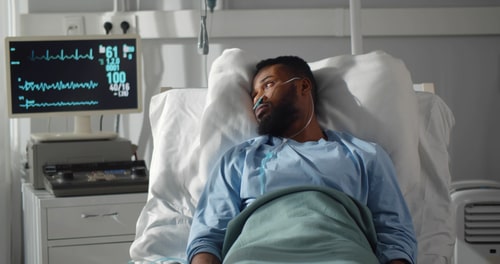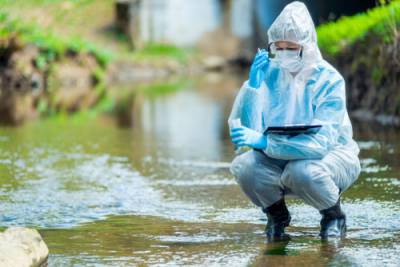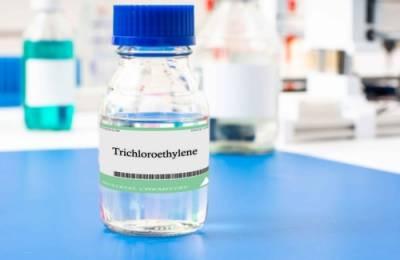
Recent Blog Posts
Symptoms of Cancer From Camp Lejeune
 A Marine Corps base in North Carolina has been at the center of a water contamination crisis affecting thousands of military personnel and their families. The contamination, which occurred between the 1950s and 1980s, exposed residents to toxic chemicals such as trichloroethylene (TCE) and perchloroethylene (PCE), leading to a range of health issues, including various types of cancer. If you have fallen ill with cancer and believe it is related to exposure to toxic water at Camp Lejeune, contact a lawyer to pursue compensation related to your illness.
A Marine Corps base in North Carolina has been at the center of a water contamination crisis affecting thousands of military personnel and their families. The contamination, which occurred between the 1950s and 1980s, exposed residents to toxic chemicals such as trichloroethylene (TCE) and perchloroethylene (PCE), leading to a range of health issues, including various types of cancer. If you have fallen ill with cancer and believe it is related to exposure to toxic water at Camp Lejeune, contact a lawyer to pursue compensation related to your illness.
What to Know About Cancer and Camp Lejeune
One of the most concerning aspects of Camp Lejeune water contamination is the link to cancer. Studies have shown that exposure to TCE and PCE can increase the risk of developing several types of cancer, including leukemia, non-Hodgkin lymphoma, bladder cancer, and kidney cancer. These chemicals are known carcinogens and have been found to have long-term health effects on those exposed to them.
Did the Water at Camp Lejeune Cause Illnesses Besides Cancer?
 Camp Lejeune, the infamous U.S. Marine Corps base in North Carolina, has been associated with numerous health issues due to contaminated drinking water. While cancer cases related to water contamination are most associated with Camp Lejeune, there are other diseases that individuals need to be aware of that do not involve cancer. Most importantly, if you are suffering from an illness related to Camp Lejeune, you do not need to suffer through your illness alone. Lawyers are available to assist you in pursuing compensation related to your illness
Camp Lejeune, the infamous U.S. Marine Corps base in North Carolina, has been associated with numerous health issues due to contaminated drinking water. While cancer cases related to water contamination are most associated with Camp Lejeune, there are other diseases that individuals need to be aware of that do not involve cancer. Most importantly, if you are suffering from an illness related to Camp Lejeune, you do not need to suffer through your illness alone. Lawyers are available to assist you in pursuing compensation related to your illness
Five Non-Cancer-Related Illnesses Associated with Camp Lejeune
-
Neurological disorders – Exposures to toxic chemicals, such as trichloroethylene (TCE) and perchloroethylene (PCE), found in the water at Camp Lejeune and have been linked to numerous neurological disorders. These include Parkinson's disease, multiple sclerosis (MS), and amyotrophic later sclerosis (ALS). Research indicates that prolonged exposure to these contaminants may increase the risk of developing these debilitating conditions.
Forms of Cancer Caused by Toxic Water at Camp Lejeune
 The water contamination at Camp Lejeune, a United States Marine Corps base in North Carolina, has had catastrophic health consequences for the exposed. Sadly, many who have been exposed to the water at the camp have fallen ill with various forms of cancer. If you are battling cancer caused by exposure to Camp Lejeune, consider contacting a lawyer. While no one can take back what you experienced and were exposed to at the camp, compensation may be available to fight the adverse health complications you are suffering from.
The water contamination at Camp Lejeune, a United States Marine Corps base in North Carolina, has had catastrophic health consequences for the exposed. Sadly, many who have been exposed to the water at the camp have fallen ill with various forms of cancer. If you are battling cancer caused by exposure to Camp Lejeune, consider contacting a lawyer. While no one can take back what you experienced and were exposed to at the camp, compensation may be available to fight the adverse health complications you are suffering from.
Top 3 Types of Camp Lejeune-Related Cancers
-
Leukemia – A cancer of the blood and bone marrow, leukemia has been strongly linked to the water contamination at Camp Lejeune. The most common forms of leukemia caused by Camp Lejeune include acute myeloid leukemia (AML) and chronic lymphocytic leukemia (CLL) among individuals exposed to contaminated water. The toxic chemicals found in the water are known carcinogens and have been associated with the development of leukemia.
Can You Die from Camp Lejeune Illnesses?
 The contaminated water at Camp Lejeune, a U.S. Marine Corps base, has caused a range of serious illnesses among military personnel and their families. While the impact of these illnesses can vary, some Camp Lejeune-related illnesses have sadly proven fatal. If you are experiencing an illness related to Camp Lejeune, you have legal options you may not be aware of. To learn about your options, contact an experienced lawyer to guide you through them and get you on the road to recovery as soon as possible.
The contaminated water at Camp Lejeune, a U.S. Marine Corps base, has caused a range of serious illnesses among military personnel and their families. While the impact of these illnesses can vary, some Camp Lejeune-related illnesses have sadly proven fatal. If you are experiencing an illness related to Camp Lejeune, you have legal options you may not be aware of. To learn about your options, contact an experienced lawyer to guide you through them and get you on the road to recovery as soon as possible.
Fatal Illnesses Caused by the Toxic Water at Camp Lejeune
-
Cancer – This is one of the most severe and potentially fatal outcomes of Camp Lejeune-related illnesses. The contaminated water at the base contained various carcinogens, including volatile organic compounds and industrial solvents. Exposure to these toxins over an extended period has been linked to an increased risk of developing cancer, such as kidney cancer, liver cancer, leukemia, and breast cancer. Sadly, some individuals who were exposed to the contaminated water have succumbed to these aggressive forms of cancer.
Types of Compensation in Camp Lejeune Toxic Water Cases
 Camp Lejeune, a United States Marine Corps base located in North Carolina, faced a tragic environmental disaster when toxic chemicals contaminated its water supply over several decades. As a result, countless individuals, including military personnel and their families, suffered severe health consequences. In these cases, compensation plays a crucial role in providing support and addressing the physical, emotional, and financial burdens those affected face. Suppose you are currently suffering from the ill effects of your exposure to toxic water at Camp Lejeune. In that case, you should strongly consider contacting an experienced lawyer, as compensation may be available to you.
Camp Lejeune, a United States Marine Corps base located in North Carolina, faced a tragic environmental disaster when toxic chemicals contaminated its water supply over several decades. As a result, countless individuals, including military personnel and their families, suffered severe health consequences. In these cases, compensation plays a crucial role in providing support and addressing the physical, emotional, and financial burdens those affected face. Suppose you are currently suffering from the ill effects of your exposure to toxic water at Camp Lejeune. In that case, you should strongly consider contacting an experienced lawyer, as compensation may be available to you.
Compensation for Medical Expenses
The primary purpose of compensation in Camp Lejeune cases is to cover medical expenses associated with the illnesses caused by exposure to toxic chemicals. This includes costs related to diagnosis, treatment, medications, surgeries, rehab, and ongoing healthcare needs. Compensation can provide financial relief, ensuring that the injured person receives the necessary medical care to manage their conditions effectively.
Symptoms of Diseases Related to Camp Lejeune Toxic Water
 The exposure to toxic water at Camp Lejeune, a United States Marine Corps base in North Carolina, has resulted in a multitude of health issues for thousands of service members, their families, and civilian employees. Those exposed to the toxic water may wonder what the potential symptoms are for diseases related to their exposure. If you or a loved one has experienced an illness related to exposure to toxic water at Camp Lejeune, contact a personal injury lawyer to ensure your rights are protected as you look to pursue compensation.
The exposure to toxic water at Camp Lejeune, a United States Marine Corps base in North Carolina, has resulted in a multitude of health issues for thousands of service members, their families, and civilian employees. Those exposed to the toxic water may wonder what the potential symptoms are for diseases related to their exposure. If you or a loved one has experienced an illness related to exposure to toxic water at Camp Lejeune, contact a personal injury lawyer to ensure your rights are protected as you look to pursue compensation.
Cancers Which Link to Camp Lejeune
One of the most significant health risks associated with Camp Lejeune's toxic water is the development of various forms of cancer. People exposed to contaminated water may experience a higher incidence of cancers, including leukemia, kidney, liver, bladder, breast, and non-Hodgkin's lymphoma. These cancers can manifest themselves years after exposure, causing significant physical and emotional distress for those affected.
The Evolution of Toxic Exposure to Cancer
 Over the course of several decades, thousands of Camp Lejeune residents – both enlisted individuals and their families – as well as community members who worked at the Base were exposed to dangerously high levels of various toxins in the Camp’s water supply. As a result of this exposure, medical events ranging from miscarriages to the development of Parkinson’s disease affected the Camp’s population. However, the most common consequence of this toxic exposure tragedy has been the development of cancer. Former Camp Lejeune residents have developed cancer in nearly every part of the human body as a result of the toxins in the Base’s water supply.
Over the course of several decades, thousands of Camp Lejeune residents – both enlisted individuals and their families – as well as community members who worked at the Base were exposed to dangerously high levels of various toxins in the Camp’s water supply. As a result of this exposure, medical events ranging from miscarriages to the development of Parkinson’s disease affected the Camp’s population. However, the most common consequence of this toxic exposure tragedy has been the development of cancer. Former Camp Lejeune residents have developed cancer in nearly every part of the human body as a result of the toxins in the Base’s water supply.
Why Is Every Camp Lejeune Resident Not Developing Cancer?
Not every individual who resided at Camp Lejeune – even those who lived and/or worked there for extended periods of time – has developed cancer. Many toxic exposure victims developed alternative medical conditions. This is because while the human body operates in specific ways, no two human bodies are exactly the same. As such, the likelihood that any particular toxic exposure victim is likely to develop a particular response to that exposure depends, in no small part, to the following:
What Exactly Happened at Camp Lejeune?
 When tragedy strikes, victims are often in a position to articulate their stories, advocate on behalf of their interests, and pursue the justice that they deserve. However, there are also oftentimes when victims of a tragic situation succumb to the harm that they have suffered before justice is served. In these situations, their loved ones may choose to pursue justice in the name of the departed.
When tragedy strikes, victims are often in a position to articulate their stories, advocate on behalf of their interests, and pursue the justice that they deserve. However, there are also oftentimes when victims of a tragic situation succumb to the harm that they have suffered before justice is served. In these situations, their loved ones may choose to pursue justice in the name of the departed.
Living victims of the Camp Lejeune toxic exposure tragedy can speak with attorneys directly about pursuing justice for the harm they have suffered. The surviving loved ones of those who have been lost can similarly seek justice. Yet, many surviving loved ones may not fully understand what happened to their loved one and whether their loved one’s medical issues were caused by toxic exposure. Understanding what happened at Camp Lejeune can help to clarify whether a loved one deserves justice as a result of their circumstances.
Study Illustrates the Severity of Contamination-Related Medical Issues
 It is now common knowledge that individuals who served, worked, and/or lived on the Camp Lejeune base for at least 30 days between August 1, 1953, and December 31, 1987, face the risk of developing significant medical conditions as a result of being exposed to toxic chemicals in the Base’s groundwater. Yet, it is not entirely clear yet just how devastating this toxic exposure crisis will ultimately become. While many Camp Lejeune toxic exposure victims have already developed life-altering medical conditions, it is almost certain that others will develop new challenges before the end of their lives.
It is now common knowledge that individuals who served, worked, and/or lived on the Camp Lejeune base for at least 30 days between August 1, 1953, and December 31, 1987, face the risk of developing significant medical conditions as a result of being exposed to toxic chemicals in the Base’s groundwater. Yet, it is not entirely clear yet just how devastating this toxic exposure crisis will ultimately become. While many Camp Lejeune toxic exposure victims have already developed life-altering medical conditions, it is almost certain that others will develop new challenges before the end of their lives.
A new study helps to highlight just how significant the consequences of this situation are proving to be for both survivors and those who have already passed away. The study indicates that those who were exposed to the toxic groundwater at Camp Lejeune have a 70% higher risk of developing Parkinson’s disease than those stationed at Camp Pendleton at the same time. That Base did not have toxic groundwater.
Medical Conditions Suffered by Camp Lejeune Contamination Victims
 One of the primary reasons why exposure to toxic substances is so dangerous is that it is not always easy to tell how such exposure will affect an individual’s body. For example, the first responders who worked at the recovery site where the Twin Towers stood prior to 9/11 were all exposed to the same toxic air. Yet, the medical conditions that they developed in the aftermath of that exposure varied significantly. The same varied reality has impacted the lives of Camp Lejeune toxic exposure victims.
One of the primary reasons why exposure to toxic substances is so dangerous is that it is not always easy to tell how such exposure will affect an individual’s body. For example, the first responders who worked at the recovery site where the Twin Towers stood prior to 9/11 were all exposed to the same toxic air. Yet, the medical conditions that they developed in the aftermath of that exposure varied significantly. The same varied reality has impacted the lives of Camp Lejeune toxic exposure victims.
Victims Have Suffered in a Myriad of Ways
Those who served, resided, and worked at Camp Lejeune over decades were exposed to toxic substances that leached into the water utilized by the Base. As a result of that exposure, victims have developed – in addition to a host of additional conditions – the following medical challenges, according to the U.S. Department of Veterans Affairs:
 Free Camp Lejeune Case Review
Free Camp Lejeune Case Review






